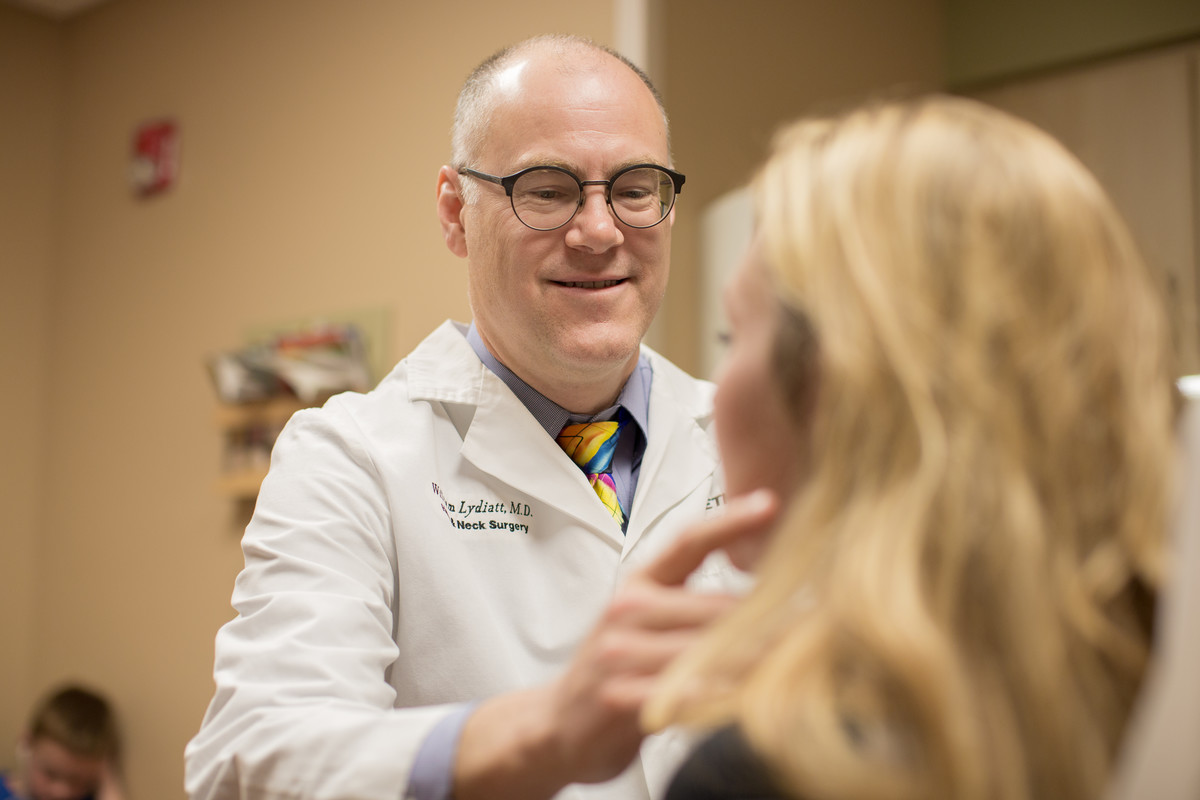Depression Can Be Added Stressor for Head and Neck Patients
Published: Aug. 13, 2018
 Among the many challenges facing patients with head and neck cancer, depression can be an added stressor that, if unrecognized and untreated, contributes to decreased quality of life and early mortality.
Among the many challenges facing patients with head and neck cancer, depression can be an added stressor that, if unrecognized and untreated, contributes to decreased quality of life and early mortality.
This information is not new. Evidence has long shown that depression rates in cancer patients are among the highest in those with head and neck cancers, occurring in approximately 15% to 50% of these patients. Some of these patients will present with or have a prior history of depression, while others will develop depression in the year following diagnosis.
“Looking at historical norms, we don’t do a very good job of addressing depression in our patients,” said William M. Lydiatt, MD, chair in the department of surgery at Nebraska Methodist Hospital and clinical professor of surgery at Creighton University in Omaha, who has written extensively on the issue. This lack in addressing depression occurs not only because otolaryngologists and other members of a typical treatment team (i.e., radiation oncologists and medical oncologists) lack the training and facility to diagnose it."
ENT Today: Diagnosing and Treating Depression in Head and Neck Cancer Patients

